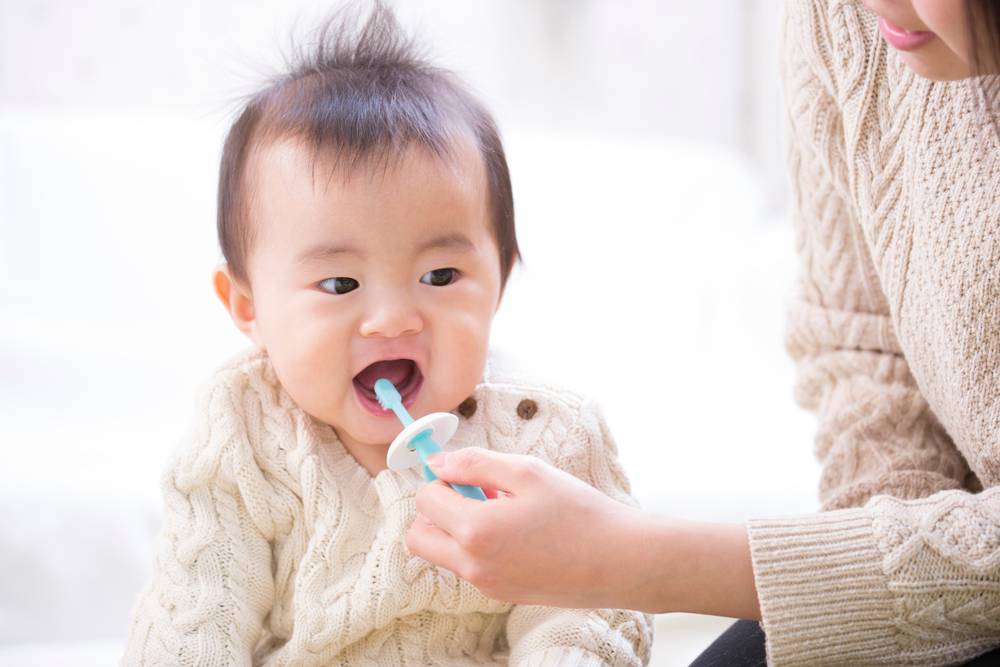Teething is a normal and natural part of a baby’s development. It can be a testing time for both the baby and the parent.
Starting as early as three months or as late as one year, this process, though essential, can cause discomfort for your baby. Learn more about teething in this article.
Recognising the Signs of Teething
Symptoms of teething can vary greatly among infants. Yet, some common signs include excessive drooling, irritability, and an increased desire to chew on hard objects. Additionally, some babies may exhibit a low-grade fever, a decreased appetite for solid foods, and disrupted sleep patterns. However, it’s vital to note that every baby is unique, and symptoms can vary.
Teething Myths Debunked
Many misconceptions surround the teething process, causing unnecessary worry for parents. Let’s debunk some of these myths:
Myth 1: Teething causes high fever and diarrhoea.
Fact: Mild fever can accompany teething, but a high fever and diarrhoea are typically not associated with teething. If your baby experiences these symptoms, it’s crucial to seek medical help, as they may indicate a different illness or infection.
Myth 2: The first tooth should appear at six months.
Fact: The timing of the first tooth’s appearance can vary greatly. While six months is an average, some babies might see their first tooth earlier or later. There’s a wide range of what’s considered “normal” in this case.
Context in Asia
Asia, with its diverse cultures and practices, holds unique beliefs when it comes to this. For instance, in China, babies often receive jade or silver bracelets when teething, which are believed to soothe discomfort. Traditional remedies like clove oil on the gums are common in India. However, it’s essential to ensure these cultural practices are safe and do not pose a choking risk.
Soothing Your Teething Baby
Various safe methods can be used to ease a baby’s discomfort. Providing clean, safe teething toys or a cool, damp washcloth to chew on can be comforting. If discomfort continues, it may be necessary to consult your paediatrician, who may suggest a mild pain reliever.
Introducing Dental Care
The emergence of the first tooth is a signal to start proper dental care. Using a baby toothbrush and water, parents can start gently cleaning their baby’s teeth. By their first birthday, regular dental check-ups should begin to ensure optimal oral health.
Maintaining Your Baby’s Nutrition
Teething can cause a decreased appetite for solid foods. To ensure your baby maintains a balanced diet, you may need to adjust meal times and the types of food offered. Soft, easy-to-swallow foods can be a good choice during this period.
Navigating This Experience
This journey between parent and baby does not have to be shrouded in mystery or fraught with stress. Therefore, by debunking common myths, understanding actual teething symptoms, and learning safe soothing techniques, parents can make the teething journey less daunting. Above all, remember that teething is a natural, albeit challenging, process that paves the way for your baby’s lifelong oral health. Staying informed and prepared is key to helping your baby navigate this stage with minimal discomfort.

